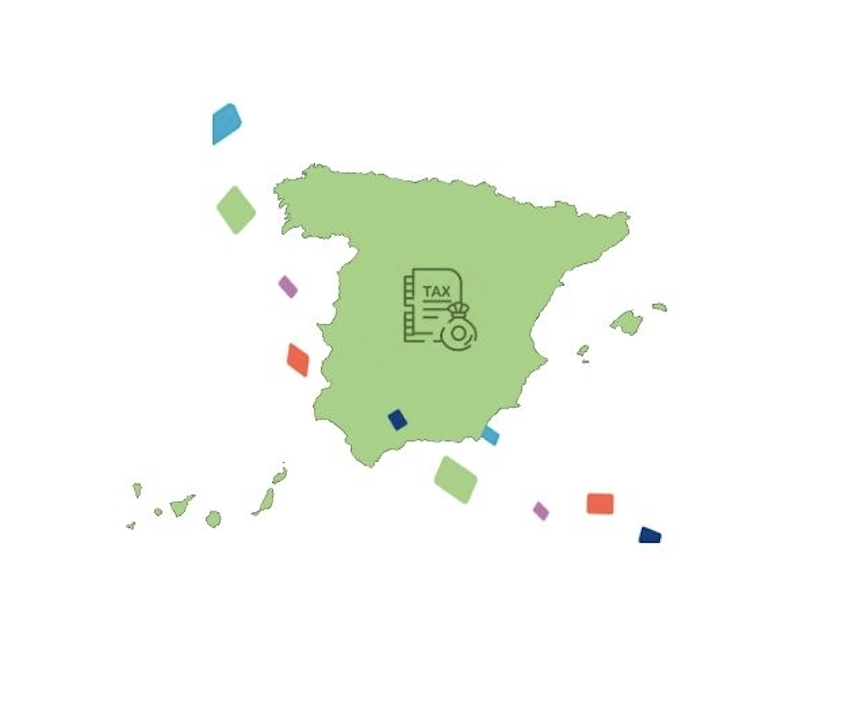Understanding Gift Card Taxation in Spain: A Comprehensive Guide


by Signe Hegart
November 6, 2023
When it comes to employee rewards and incentives, gift cards are a popular choice for companies. They provide a convenient and versatile way to show appreciation and motivate employees. However, it’s important to understand the tax implications of using gift cards in Spain. In this blog post, we will discuss the taxation rules and regulations surrounding gift cards in Spain.
Jump to section
Gift Card Taxation in Spain
In Spain, gift cards are considered as a form of income and are subject to taxation. The tax treatment of gift cards depends on whether they are considered as salary or as a non-salary benefit.
If a gift card is given as a salary, it is subject to social security contributions and income tax. The value of the gift card is added to the employee’s taxable income and is taxed at the applicable income tax rates.
On the other hand, if a gift card is given as a non-salary benefit, it is subject to different tax rules. Non-salary benefits are subject to a specific tax rate of 47% for the first €12,000 and 49% for any amount exceeding €12,000. This means that the value of the gift card will be taxed at these rates.
It’s essential to bear in mind that the utilization of gift cards is subject to taxation as per the Personal Income Tax Law (IRPF in Spain) and the Value Added Tax Law (VAT). This implies that when a gift card is given to an employee or customer, it qualifies as a form of in-kind payment and is consequently liable to taxation.
When it comes to rewarding or incentivizing your customers, it’s important to distinguish between the two types of gift cards in Spain: multi-purpose cards and single-purpose or univalent cards.
Multi-purpose cards are those that can be employed to purchase items with varying VAT rates, such as a gift card for a shopping mall that is valid in any of its stores. In such cases, the card’s value is included in the VAT calculation and taxed as if it were a standard sale.
On the other hand, univalent cards can only be used at a specific establishment or store, like a Zara gift card that is redeemable solely in Zara outlets. In this scenario, the card’s value does not factor into the VAT taxable base and, as a result, remains exempt from taxation.
Source: Spainlawyer
Related: Gift Card Taxation In Ireland: A Business Guide
Gift Card Taxation In Spain for companies with international employees
Gift Card Taxation in Spain for companies with international employees can be complex, as it may involve various tax regulations and international tax treaties. Companies providing gift cards to international employees in Spain should consider several key factors:
- Residency Status: The tax implications for international employees receiving gift cards in Spain can depend on their residency status. Resident employees are typically subject to Spanish tax laws, while non-resident employees may have different tax obligations.
- Income Tax: In general, gift cards provided to employees, whether local or international, can be subject to income tax in Spain if they are considered part of the employee’s compensation or benefits. The tax treatment of these benefits may vary based on the employee’s residency status, the value of the gift card, and the specific circumstances. Tax authorities may view gift cards as taxable income, so companies should report these benefits accordingly.
- Double Taxation: International employees who are residents of other countries may face potential double taxation on gift cards received in Spain. Double taxation can be mitigated through tax treaties between Spain and the employee’s home country. Under such treaties, the taxation of gift cards may be coordinated to prevent dual taxation.
- VAT: Companies should be aware of the Value Added Tax (VAT) implications when purchasing and distributing gift cards in Spain. VAT rules apply, and the tax treatment may vary depending on the purpose of the gift cards and the applicable VAT rates for the goods or services the gift cards can be used for.
- Documentation and Reporting: It is crucial for companies to maintain proper documentation and records of gift card distribution, as well as report any taxable benefits to the tax authorities. This ensures compliance with Spanish tax laws and provides transparency in case of tax audits.
- Business Expenses: If gift cards are provided for business purposes, such as incentives, promotions, or employee rewards, the cost of acquiring these gift cards may be considered a deductible business expense for the company. However, specific rules and limitations may apply, and companies should consult with tax professionals to determine the deductibility of these expenses.
To navigate the complexities of Gift Card Taxation in Spain for international employees, it is highly advisable for companies to seek the guidance of tax experts or legal advisors with expertise in international taxation. These professionals can help ensure compliance with both Spanish tax laws and any relevant international tax agreements.
Why are gift card taxation laws important? ⚖️
Gift card taxation laws are important for several reasons:
- Tax Compliance: Understanding and adhering to gift card taxation laws is crucial for individuals and businesses to ensure they are in compliance with tax regulations. Failing to comply with these laws can result in penalties, fines, and legal consequences.
- Financial Planning: Knowing how gift cards are taxed allows individuals and businesses to plan their finances effectively. This includes budgeting for any potential tax liabilities associated with gift cards, especially in the case of businesses that use gift cards as incentives or rewards.
- Transparency: Clear and consistent gift card taxation laws promote transparency and fairness in financial transactions. They ensure that individuals and businesses are aware of their tax obligations, which helps prevent tax evasion and fraud.
- Consumer Protection: Many gift card taxation laws include provisions that protect consumers. For example, laws may regulate gift card expiration dates, inactivity fees, and disclosure requirements, ensuring that consumers receive the full value of their gift cards.
- Double Taxation: Understanding Gift Card Taxation in Spain is essential for international transactions. Different countries may have varying tax rules for gift cards, and knowing how these rules interact helps prevent double taxation, where the same income or value is taxed in multiple jurisdictions.
- Tax Revenue: For governments, gift card taxation laws represent a source of tax revenue. Taxing gift cards can help fund public services and infrastructure. Accurate taxation of gift cards ensures that the government collects the appropriate amount of tax revenue.
- Business Operations: For businesses that use gift cards as part of their operations, understanding Gift Card Taxation in Spain is vital. It helps them comply with tax obligations, manage their finances, and make informed decisions about how to offer, distribute, and account for gift cards.
- Legal Compliance: Compliance with gift card taxation laws is not only a financial matter but also a legal one. Violating these laws can lead to legal consequences, including fines, litigation, and damage to a business’s reputation.
- Customer and Employee Relations: For companies that use gift cards as rewards or incentives for customers or employees, following Gift Card Taxation in Spain helps maintain positive relations. It ensures that recipients are not surprised by unexpected tax liabilities.
Read also: Understanding Gift and Gift Card Taxation In France: A Quick Overview
Understanding the Gift Card Taxation In Spain ✅
Understanding Gift Card Taxation in Spain involves delving into several important aspects. Let’s explore each of these aspects in more detail:
VAT (Impuesto sobre el Valor Añadido, IVA)
In Spain, the Value Added Tax (VAT) is a key consideration when dealing with gift cards. When a gift card is purchased in Spain, it is typically subject to VAT. The specific VAT rate that applies may vary depending on the nature of the goods or services that the gift card can be exchanged for. For instance, if the gift card can be used to purchase products with different VAT rates (e.g., standard rate, reduced rate), the applicable VAT rate at the time of purchase will be determined based on the expected use of the gift card. It’s important to note that the responsibility for paying the VAT typically falls on the purchaser of the gift card, and this tax is collected at the time of acquiring the card.
Recipient Taxation
When recipients use the gift card to make purchases, they are generally not subjected to additional taxation on the same amount. This is because the initial VAT payment made by the purchaser when buying the gift card covers the tax liability associated with that transaction. Therefore, recipients can enjoy their gift card’s value without incurring additional taxes when making eligible purchases.
Expiration Dates
Spanish law regulates the expiration dates of gift cards to protect consumers. Gift cards in Spain must typically remain valid for a predetermined period, which is often set at a minimum of five years from the date of issuance. This legal requirement ensures that the value of the gift card remains accessible to the recipient for an extended period. After this statutory period, the gift card may expire, and the issuer may no longer be legally obliged to honor it. Consumers should be aware of these regulations to ensure they use their gift cards before they expire.
Inactivity Fees
Spain may have specific regulations that limit or even prohibit the imposition of inactivity fees on gift cards. Inactivity fees are fees that some issuers charge if the gift card is not used within a certain timeframe. These regulations aim to protect consumers from losing the value of their gift cards due to infrequent use. Consequently, gift card issuers in Spain are generally not permitted to deduct fees for inactivity or non-use of the card.
Business Expenses
For businesses operating in Spain, purchasing gift cards for employee incentives, promotions, or customer rewards can be considered a deductible business expense. However, the deductibility of such expenses can vary depending on the purpose and the amount of the gift cards. It’s advisable for companies to consult with tax professionals or accountants who are well-versed in Spanish tax laws to gain a clear understanding of the precise tax treatment of gift card-related expenses.
Given the evolving nature of tax laws and the potential for changes in regulations, staying informed about the latest tax requirements is crucial. Seeking guidance from tax professionals and periodically reviewing relevant tax authorities’ updates is a wise strategy to ensure compliance with the most current Gift Card Taxation in Spain.
Types of gift cards in Spain
In Spain, there are various types of gift cards designed to meet different purposes and preferences. Here are some common types of gift cards in Spain:

Multi-store Gift Cards
These gift cards can be used to purchase a wide range of goods and services across multiple retailers or establishments. They are versatile and often issued by shopping malls or retail chains. For example, a multi-purpose gift card from a shopping center can typically be used in any store within that mall. Multi-purpose gift cards are subject to VAT and considered payments in kind.

Single-Purpose or Univalent Gift Cards
Single-purpose or univalent gift cards are restricted to a specific retailer, brand, or establishment. For instance, a gift card for a specific clothing store, like Zara, can only be used at Zara stores. Univalent gift cards are often not subject to VAT, and they are generally treated differently for tax purposes compared to multi-purpose cards.

Prepaid Visa Cards
Prepaid gift cards function like debit cards and are loaded with a specific monetary value. They can be used for a wide range of purchases, much like cash, and are often issued by financial institutions or payment processors. The tax treatment of prepaid gift cards may depend on their use and purpose.

Digital or E-Gift Cards
With the increasing prevalence of online shopping, digital or e-gift cards have become popular. These are typically sent electronically through email or messaging platforms and can be used for online purchases. The taxation of digital gift cards in Spain follows similar principles to physical gift cards.

Restaurant and Dining Gift Cards
These gift cards are tailored for dining experiences at specific restaurants or restaurant chains. They allow recipients to enjoy meals and drinks at the designated establishments. The taxation of these cards may vary depending on the specific use and applicable VAT rates.

Experience or Adventure Gift Cards
Experience gift cards offer recipients unique experiences, such as spa treatments, adventure activities, travel, or cultural events. The tax treatment may vary based on the nature of the experience and whether it is subject to VAT.

Charitable Gift Cards
Charitable gift cards allow individuals to make a donation to a specific charity or cause in someone’s name as a gift. The tax implications may differ for the donor and the recipient, and they depend on local tax regulations.

Employee Rewards and Incentive Cards
Businesses in Spain often use gift cards as rewards for employees or incentives for achieving specific goals or targets. The tax treatment may vary depending on the purpose and amount of the gift cards, and they are often considered deductible business expenses.
These are some of the common types of gift cards in Spain, each serving specific purposes and subject to different taxation and regulatory considerations. The Gift Card Taxation in Spain can vary depending on factors such as the type of card, its use, and the applicable tax laws. It’s essential to be aware of the specific characteristics and tax implications associated with each type of gift card.

Send yourself a gift card
Employers responsibilities in Spain when providing gift cards for employees
In Spain, when employers provide gift cards for employees, they have several responsibilities to ensure compliance with tax and labor regulations. Here are some of the key responsibilities that employers should be aware of regarding Gift Card Taxation in Spain:
Tax Compliance: Employers should be well-versed in the tax implications of offering gift cards to employees. In Spain, gift cards are typically considered a form of compensation or a benefit in kind. This means that the value of the gift card may be subject to income tax. Employers should understand when and how gift cards should be treated as taxable income.
Income Tax Reporting: Employers are obligated to report the value of gift cards provided to employees to the Spanish tax authorities. This reporting is usually carried out through the regular income tax return process, which may involve specific forms such as Modelo 190. Accurate reporting is essential to ensure compliance with tax regulations.
VAT Considerations: When purchasing gift cards for employee rewards, employers should take into account the Value Added Tax (VAT) implications. VAT may apply to the initial purchase of the gift cards, and it is typically borne by the employer. Understanding the VAT rates and rules is important to manage the cost effectively.
Compliance with Deductibility Rules: Gift cards provided to employees may be considered a deductible business expense in Spain, particularly when they are used for employee incentives, promotions, or rewards. Employers should ascertain that the gift cards meet the necessary criteria for deductibility, considering factors like the purpose and amount of the gift cards.
Informing Employees: Employers must communicate clearly with employees about the tax implications of receiving gift cards as part of their compensation. This transparency helps employees understand the financial aspects of the gift and minimizes misunderstandings.
Record-Keeping: Accurate record-keeping is fundamental. Employers should maintain thorough records of the distribution of gift cards to employees. These records are invaluable for tax reporting, compliance, and resolving any potential tax-related issues.
Compliance with Labor Laws: It is essential for employers to ensure that the provision of gift cards aligns with labor laws and collective labor agreements. Some agreements may contain specific provisions regarding employee benefits, and employers must adhere to these agreements.
Transparent Communication: Transparency is a guiding principle when providing gift cards to employees. Employers should make clear the purpose and nature of the gift cards, whether they are rewards for exceptional performance, holiday gifts, or other forms of recognition.
Equal Treatment: Employers should ensure that the distribution of gift cards is conducted fairly and consistently among employees. Equality is a fundamental principle to avoid discrimination.
Follow Local and Regional Regulations: Employers should be aware of any local or regional regulations that may apply to gift card benefits in Spain. Some regions in Spain may have specific rules or provisions regarding employee benefits, so it’s important to understand and comply with these.
Legal Consultation: In complex scenarios or when handling intricate compensation packages, it is advisable for employers to seek legal and tax advice. Legal professionals with expertise in Spanish employment and tax law can provide guidance to ensure full compliance.
By fulfilling these responsibilities, employers can effectively manage the Gift Card Taxation in Spain and labor law aspects of providing gift cards to employees, maintain a positive employer-employee relationship, and ensure that the process is compliant with relevant regulations.
Read also: Global Gift Card Market Size, Growth and Stats 2023-2030
Case studies to illustrate how Gift Card Taxation In Spain works in different scenarios
Case Study 1: Employee Recognition Gift Cards
Scenario: A Spanish technology company wants to reward its employees for their outstanding performance during the year. The company decides to provide €200 gift cards to each of its 100 employees as a year-end bonus.
Tax Implications: The gift cards provided to employees are considered a form of compensation. The company needs to report the total value of the gift cards (€20,000) as part of its employee compensation expenses. Each employee must report the €200 gift card as taxable income on their income tax returns. The employer may be required to withhold and remit the applicable income tax on behalf of the employees.
Case Study 2: Customer Loyalty Program Gift Cards
Scenario: A retail chain in Spain runs a customer loyalty program where customers earn points for purchases. As part of the program, customers can redeem their points for gift cards to use in the store.
Tax Implications: The issuance of gift cards to customers does not trigger additional tax liabilities at the time of redemption. The retailer needs to account for any VAT paid when purchasing the gift cards, which is considered a business expense. Customers may need to pay VAT when using the gift cards to make purchases, depending on the products or services they buy and the applicable VAT rates.
Case Study 3: Multi-Purpose Gift Cards
Scenario: A large shopping mall in Spain sells gift cards that can be used in any store within the mall. A customer purchases a €100 multi-purpose gift card.
Tax Implications: The customer pays VAT on the €100 gift card at the time of purchase, which goes to the tax authorities. When the customer uses the gift card to make a purchase, they do not face additional VAT as it has already been paid when the card was acquired. The store that accepts the gift card accounts for VAT on the specific products or services the customer buys.
Case Study 4: Business Expense Gift Cards
Scenario: A Spanish company wants to motivate its sales team and decides to provide €500 gift cards to each salesperson as a bonus for reaching their quarterly sales targets.
Tax Implications: The company’s purchase of gift cards for its employees is considered a deductible business expense. The value of the gift cards (e.g., €500 per employee) is not considered taxable income for the employees. The company can write off the cost of the gift cards as a business expense, reducing its taxable income.
Case Study 5: Charitable Donation Gift Cards
Scenario: A Spanish corporation decides to donate €10,000 worth of gift cards to a local charity to help underprivileged families during the holiday season.
Tax Implications: The donation of gift cards to a registered charity may result in a tax deduction for the corporation, which can reduce its taxable income. The charity can distribute the gift cards to the families without tax implications. For the families receiving the gift cards, they do not need to pay taxes on the value of the gift cards as they are considered donations.
These case studies illustrate different scenarios involving Gift Card Taxation in Spain and how they are taxed based on the purpose, use, and recipients. It’s essential to understand the specific circumstances and tax implications associated with each case to ensure compliance with Spanish tax regulations. Consulting with tax professionals or legal advisors may be necessary for complex situations.
5 tips for Gift Card Taxation in Spain
- Understand VAT Regulations: Familiarize yourself with the Value Added Tax (VAT) regulations in Spain, as they are a crucial component of gift card taxation. Be aware of the VAT rates that apply to different types of goods or services that gift cards can be used to purchase. Ensure that VAT is correctly collected and remitted when purchasing gift cards.
- Keep Accurate Records: Maintain detailed records of all gift card transactions, including the purchase, distribution, and redemption of gift cards. Accurate records are essential for tax reporting, compliance, and resolving potential tax-related issues.
- Comply with Gift Card Expiration Rules: Be aware of the regulations governing gift card expiration dates in Spain. Gift cards are typically required to remain valid for a specific period, often around five years from the date of issuance. Ensure that your gift card programs adhere to these rules to protect consumer rights.
- Communicate Transparently with Employees: If you provide gift cards to employees, communicate clearly about the tax implications. Ensure that employees understand whether the value of the gift cards will be considered taxable income and whether taxes will be withheld.
- Seek Professional Advice: For complex scenarios or if you have questions about specific gift card transactions, consider seeking advice from tax professionals or legal advisors with expertise in Spanish tax regulations. They can provide guidance on compliance and help navigate the intricacies of gift card taxation in Spain.
Conclusion
Gift cards can be a versatile tool for companies, whether they are used as rewards for employees, as charitable donations, or in other scenarios. However, it’s important to be aware of the Gift Card Taxation in Spain.
In general, when a customer purchases a gift card, they will pay VAT on the value of the card at the time of purchase. This VAT goes to the tax authorities. When the customer uses the gift card to make a purchase, they do not face additional VAT as it has already been paid when they acquired the card. Instead, the store that accepts the gift card is responsible for accounting for VAT on the specific products or services the customer buys.
In the case of business expense gift cards, such as when a company provides gift cards to its employees as a bonus for reaching sales targets, there are specific tax implications to consider. The purchase of gift cards for employees is considered a deductible business expense. The value of the gift cards is not considered taxable income for the employees. Additionally, the company can write off the cost of the gift cards as a business expense, reducing its taxable income.
It’s important to emphasize that individuals and businesses should always seek professional assistance and guidance when dealing with Gift Card Taxation in Spain. The complexities and nuances of tax regulations can have a significant impact on financial decisions, so consulting with tax professionals or legal experts is strongly recommended to ensure compliance and navigate any potential challenges effectively.



Let’s have a chat
FAQ
Gift cards provided to employees for rewards or incentives may be considered a deductible business expense for the employer. The value of the gift cards is not considered taxable income for the employees.
In Spain, the tax treatment of gift cards depends on various factors, including their purpose, use, and the applicable tax laws. Generally, the purchase of gift cards may be subject to Value Added Tax (VAT), and the use of gift cards can have income tax implications.
Yes, when in doubt, it is always recommended to seek advice from a tax advisor or HM Revenue and Customs (HMRC). Tax regulations can change, so it’s essential to stay informed and consult with experts who can provide accurate and up-to-date information.